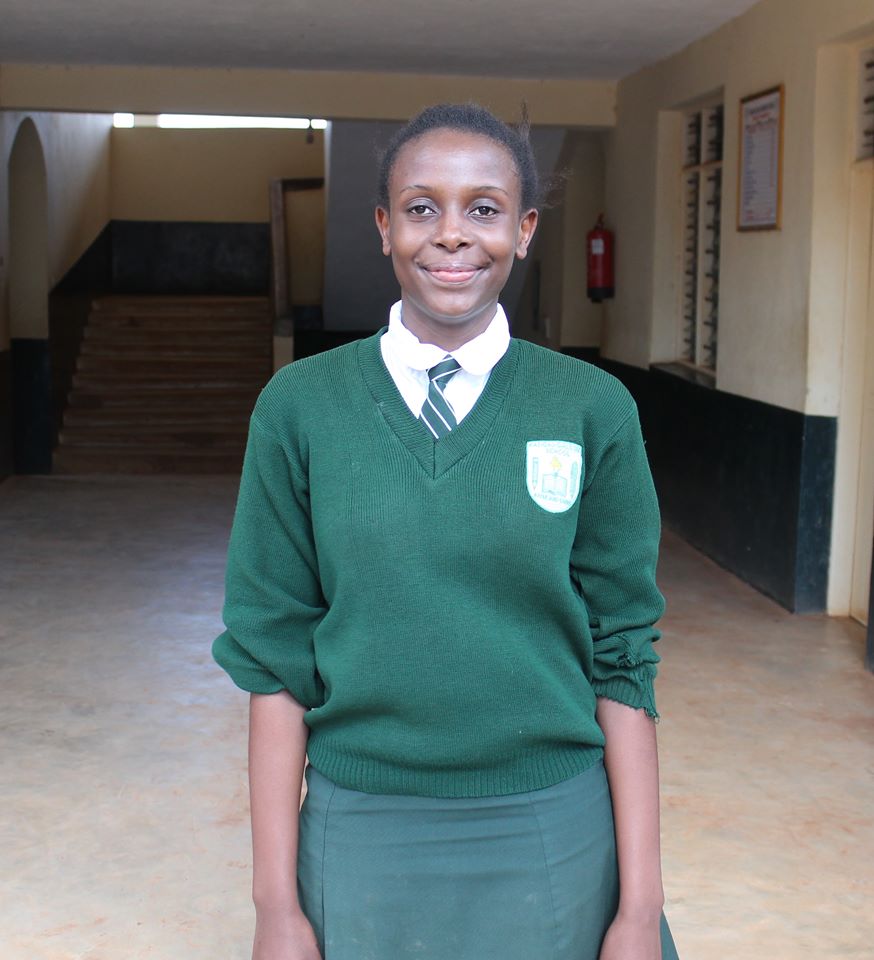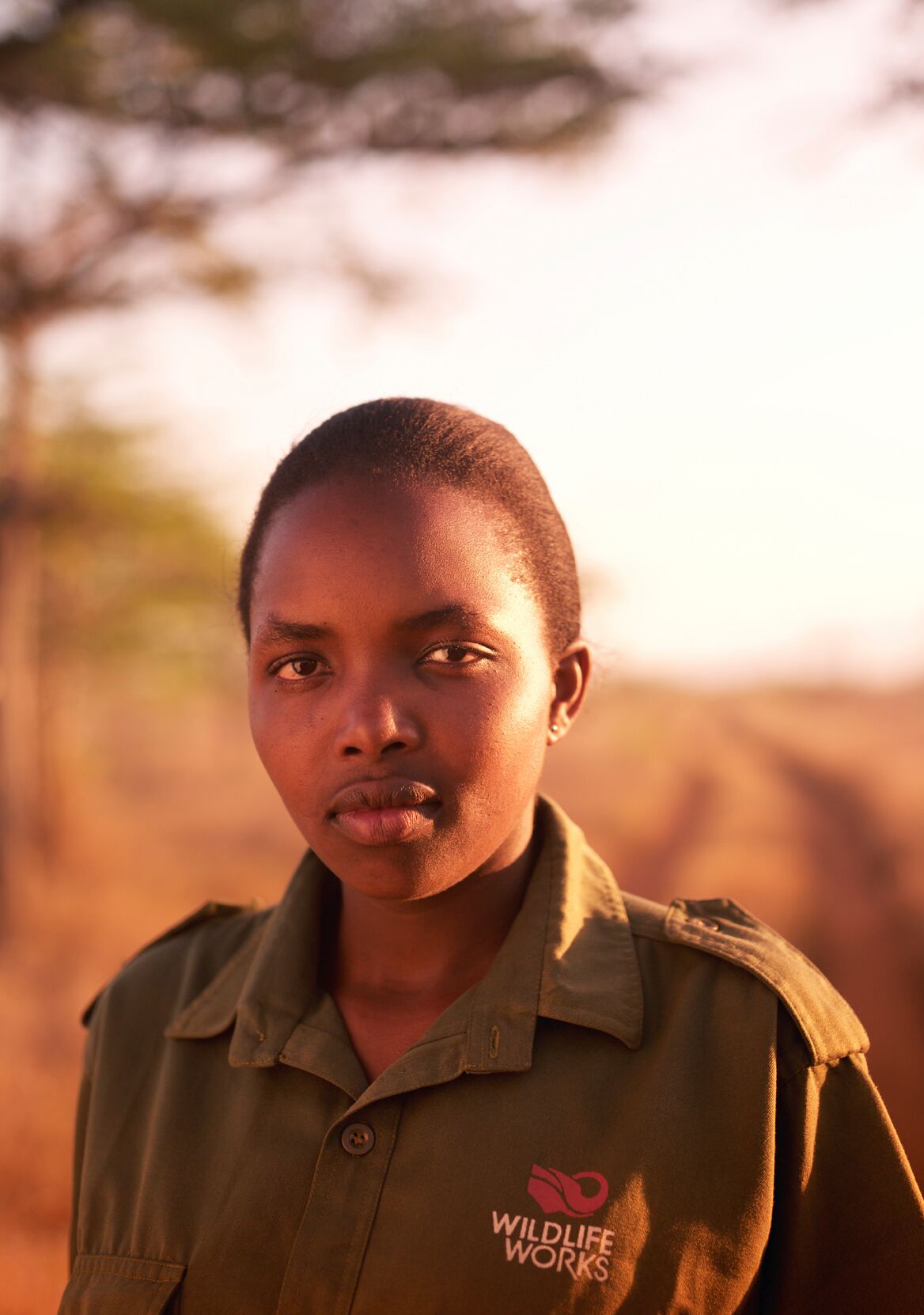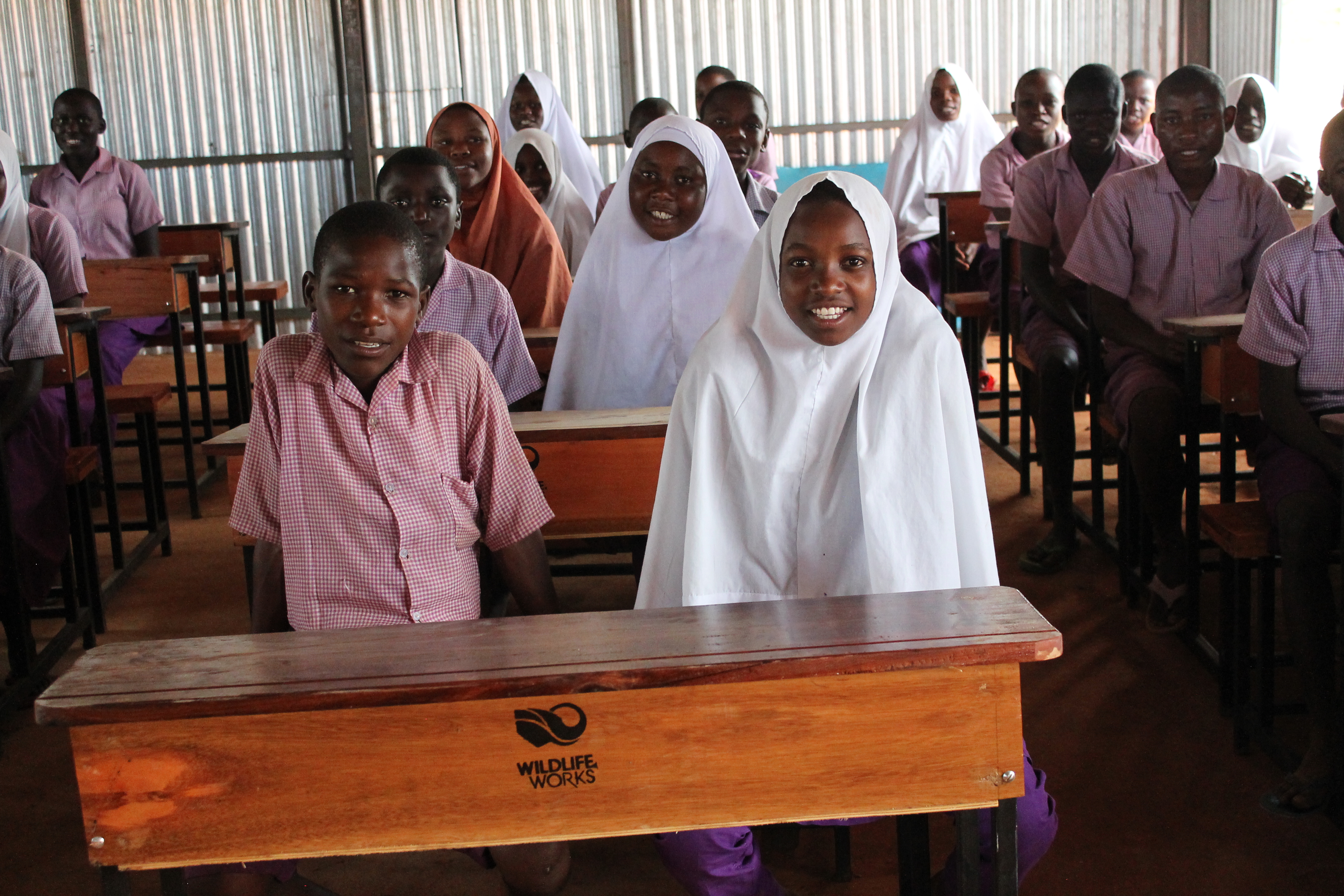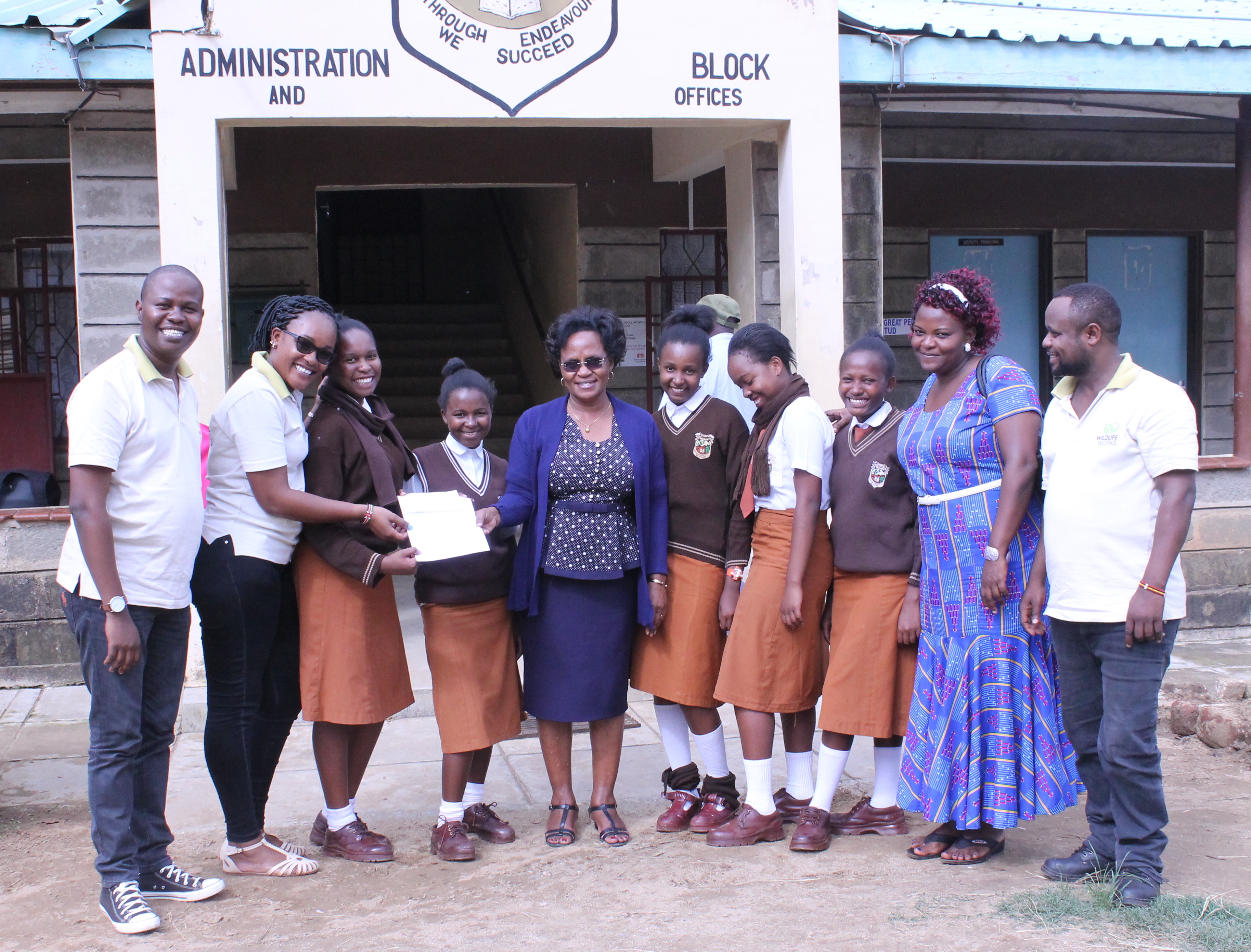
Education matters; Thousands Benefit from Wildlife Works Bursaries
In a remote village in Southeastern Kenya called Marungu, Zanira Kasyoka, a Wildlife Works employee, stands with pride as she gives an inspiring speech to hundreds of attentive local community members seated in a social hall. Present are different stakeholders including Environmental Officers, local Chiefs and Bursary Committee Members, all who have come to witness Wildlife Works’ bursary presentation ceremony. Zanira is giving a speech on how Wildlife Works’ educational scholarships helped transform her life. “Thanks to Wildlife Works’ bursaries, I was able to complete my secondary education. I am living proof that the REDD+ project can positively impact lives,” she says.
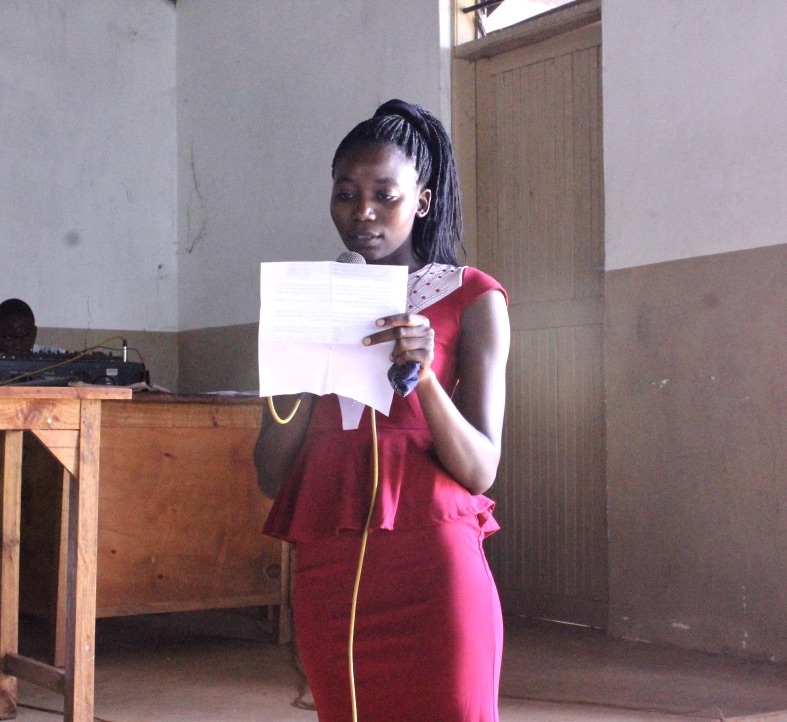
Zanira’s case is similar to thousands of students in our project area, who prior to Wildlife Works’ involvement had a hard time completing school. The majority of people living in the area come from poor family backgrounds, and cannot afford basic needs like education. Access to education has been one of the main project agendas as part of our commitment to the UN Sustainable Development Goals. One of the benefits that the Kasigau Corridor REDD+ Project offers to students living in our project area is awarding of education bursaries. Since 2014, Wildlife Works has distributed scholarship money worth $368,000 to needy students in our project area who are in secondary school and above. This year alone, we distributed Ksh 9,790,115 ($97,221) to students learning in secondary schools, universities, polytechnics and tertiary institutions. The beneficiaries totaled 2,789 students of which 2,337 students are in high school, 111 in universities, 136 in polytechnics, 200 in college and 5 disabled pupils in primary school. These funds are allocated to ease the burden to parents and guardians of bright yet needy students who had been forced to stay home due to lack of school fees.

Students attending Murray Girls’ Secondary School situated in Wundanyi are a perfect example of this. Their exemplary academic performance yet lack of financial backing was the reason behind $1,220 worth of bursary allocations from Wildlife Works. The school’s Chief Principal Veronica Marami explained that students living in the area mostly come from underprivileged families. “This means that they have to stay at home until their parents are in a position to secure tuition money. The bursaries will also go a long way in ensuring that normal school operations continue smoothly,” she said. Another example is Manoa Secondary School where students who had applied for the bursaries got their fair share of the allocation. Joseph Mwakima, Wildlife Works Community Relations Officer gave a motivational speech to the young learners on the importance of working hard in school. Athanas Mkala, the school’s Deputy Head teacher explained that most parents in the area are small-scale farmers. “This is a challenge in an area facing changing and unpredictable rainy seasons,” he said. He now says that the parents will be at ease thanks to Wildlife Works’ educational scholarships.
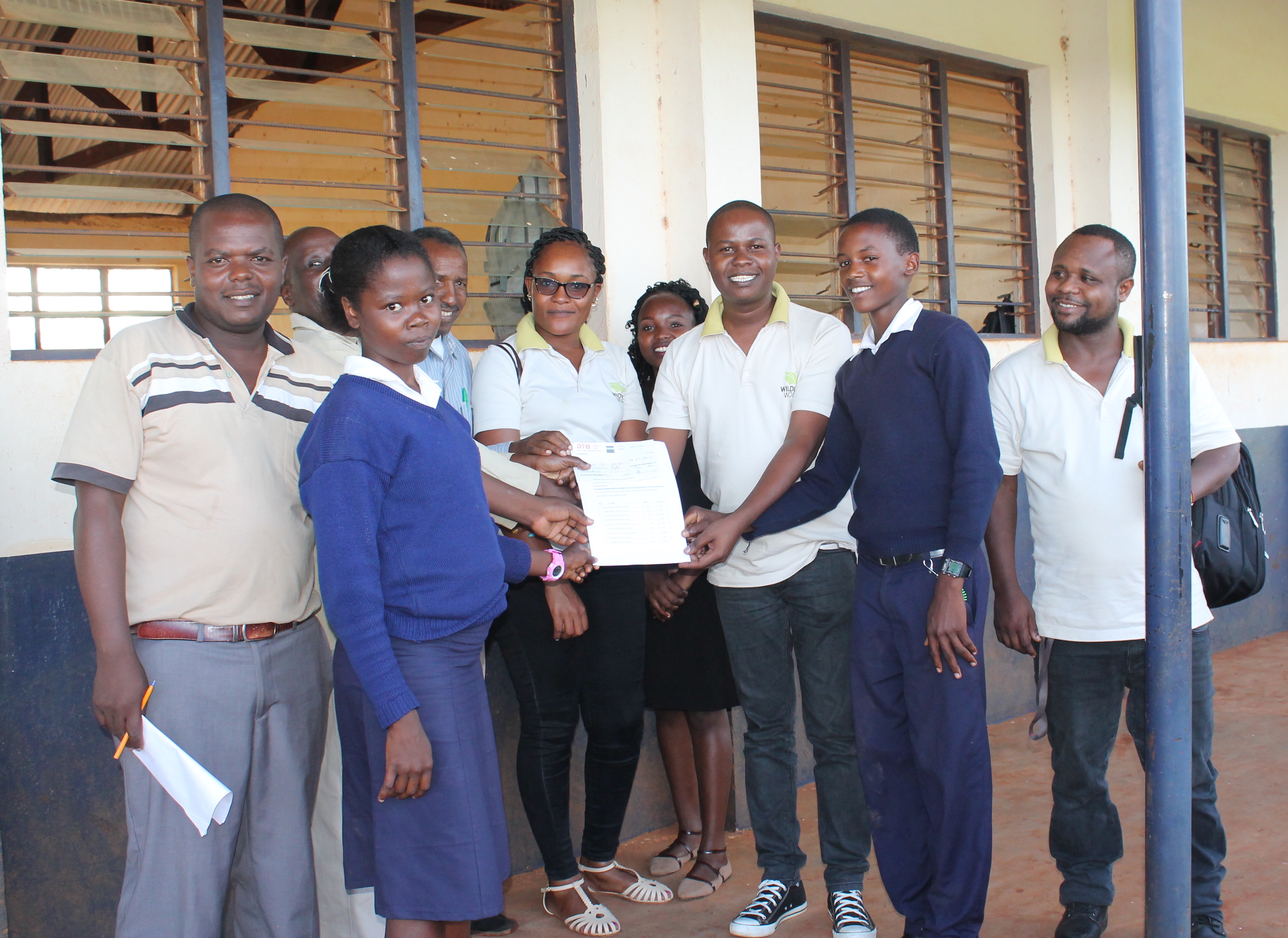
All this has been made possible through conserving wildlife and the environment. By protecting trees and wildlife in the area, part of the income made from selling carbon credits is allocated to education bursaries in consultation with the community.
Despite the sense of relief from the beneficiaries, not all of the students who had applied for bursaries are successful. For one to be eligible, he or she must undergo a thorough background check conducted by the bursary committee members. Other crucial requirements for eligibility include outstanding performance in class, relevant signatures from school heads and universities, and proper filing in of the bursary application forms, among others. Those who fail to meet these requirements are requested to reapply for the next round of bursaries and taught on how to address any discrepancies in their next application.
As well as educational bursaries, Wildlife Works has tried to tackle barriers students face when accessing education. For instance, many of the schools in our project area were forced to carry out their daily lessons under a tree, in open places or under dilapidated structures because they did not have classroom facilities. Wildlife Works is addressing this crisis by constructing and renovating adequate classrooms as well as donating desks and chairs to pupils in schools.
Wildlife Works wishes to thank our community leaders and partners in the Kasigau Corridor REDD+ Project who have supported us throughout this worthy process.
